This book is a collection of letters that came in response to some of the questions posed to Ibn Arabi by some of the sheikhs, scholars, and contemporaries. It also contains a collection of books that address some important Sufi ideas, such as the issue of annihilation, oneness, manifestation, beauty, the meaning of eternity, the seven heavens, the spirituality of each heaven and its specialities, the spirituality of the spheres, and other ideas that open new horizons for our understanding of religion and Sufism.
Ibn Arabi’s Letters
د.ا7.50د.ا8.00
A collection of letters written by Muhyiddin Ibn Arabi, addressing profound spiritual and philosophical topics that reflect a distinctive Sufi thought.
Available on backorder
| Categories: | Literature, Islamic literature, Messages, Philosophy |
|---|---|
| Tags: | Islam, Islamic Studies, Spirituality, Belief |
| Author | |
|---|---|
| Year | |
| Publisher | Dar al-Kutub al-Ilmiyyah |
You may also like…
-
My Arch Enemy
د.ا7.00The novel is an exciting story of letters that reveals the development of its heroine’s relationship with a mysterious person through the exchange of correspondence, within a framework of romance and drama.
د.ا8.00 -
Letters from the Companions
د.ا10.00A book that collects imaginative literary letters inspired by the biographies of the Companions, conveying meanings of wisdom, faith, and humanity.
-
Messages from the Qur’an
د.ا9.00This book contemplates the meanings of the verses of the Qur’an and presents spiritual messages and life lessons in the distinctive style of Adham Sharqawi.
-
Messages from the Prophet ﷺ
د.ا13.00This book presents literary and humane reflections inspired by the Prophet’s biography and stances, in a contemporary style that touches the heart and mind.
Related products
-
The Alchemist
د.ا4.97The Alchemist (Portuguese: O Alquimista) is a novel by Brazilian author Paulo Coelho which was first published in 1988. Originally written in Portuguese, it became a widely translated international bestseller. The story follows the shepherd boy Santiago in his journey across North Africa to the Egyptian pyramids after he dreams of finding treasure there.
د.ا7.10 -
Flower swordsman
د.ا7.10The Swordsman of Flowers is a collection of prose texts that combines irony and sadness and expresses issues of freedom and human oppression
د.ا8.52 -
For Bread Alone
د.ا4.97For Bread Alone , al-Khubz al-Hafi) is a controversial autobiographical work by Mohammed Choukri. It was written in Arabic in 1972 and translated into English by Paul Bowles in 1973.[1] In 1980, it was published in French as Le Pain Nu in a translation by Tahar Ben Jelloun. The novel has been translated into 39 foreign languages[2] and adapted into a French graphic novel by Abdelaziz Mouride [fr].[3]
د.ا7.10 -
In Zionist literature
د.ا3.55Ghassan Kanafani is a Palestinian novelist, storyteller, and journalist, and is considered one of the most famous Arab writers and journalists in the twentieth century. His literary works, including novels and short stories, were deeply rooted in Arab and Palestinian culture
د.ا4.97 -
Palestinian resistance literature under occupation
د.ا3.55Ghassan Kanafani is a Palestinian novelist, storyteller, and journalist, and is considered one of the most famous Arab writers and journalists in the twentieth century. His literary works, including novels and short stories, were deeply rooted in Arab and Palestinian culture
د.ا4.97 -
Men in the sun
د.ا2.13Ghassan Kanafani is a Palestinian novelist, storyteller, and journalist, and is considered one of the most famous Arab writers and journalists in the twentieth century. His literary works, including novels and short stories, were deeply rooted in Arab and Palestinian culture
د.ا3.55 -
The Forty Rules of Love
د.ا10.65is a novel written by the Turkish author Elif Shafak,[1][2][3] Her interest in writing this book was influenced by the degree she received in Gender and Women’s Studies.[4] The book was published in March 2009.[5] It is about the Persian mystic poet Maulana Jalal-Ud-Din, known as Rumi and his companion Shams Tabrizi.[6][7] This book explains how Shams transformed a scholar into a Sufi (mystic) through love.[8] More than 750,000 copies of this book were sold in Turkey and France
د.ا12.78 -
Anichatin and relativity
د.ا2.13In this book, its author, Dr. Mustafa Mahmoud, tries in his style known as ease and extreme logic in understanding the theory of relativity of the physicist Albert Einstein so that it suits the understanding and perception of the general public, and in a strong objection to limiting information to a few scientists under the pretext of depth and specialization, which may lead to the isolation of science, supporting in his book what Einstein himself called for to spread science among people, Einstein hated scientific fortune-telling and fabrication of mystery, claim, and magnification, and he used to say that the truth Never mind.
د.ا4.26


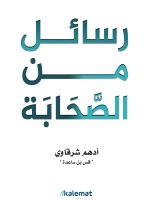
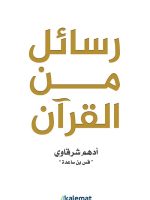

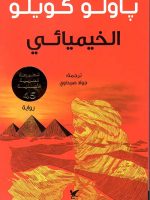
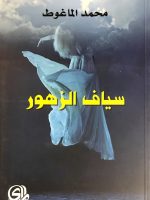
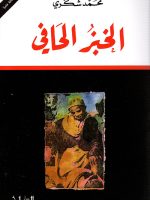



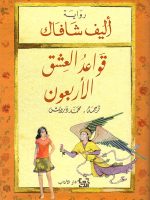
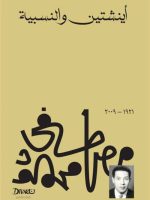
Be the first to review “Ibn Arabi’s Letters”